Understanding Weight Loss
What is Weight Loss?
Weight loss refers to a reduction in body weight, often assessed using body mass index (BMI), achieved through methods such as dietary changes, increased physical activity, and lifestyle adjustments.
For some individuals, medical treatments like prescription medications or surgical interventions may also be involved.
Success is typically measured not only by weight changes but also by improvements in overall health and well-being.
Mixx makes achieving weight loss goals more convenient and effective by offering customized, at-home weight loss solutions. With no hidden fees, licensed physicians, and unlimited check-ins, we help patients attain meaningful results.
Why is Weight Loss Important?
Carrying excess weight increases the risk of numerous chronic conditions, including heart disease, type 2 diabetes, hypertension, high blood pressure, and certain cancers. Achieving and maintaining a healthy weight can improve energy levels, mobility, mental health, and overall quality of life.
Losing weight can also help reduce joint pain, enhance sleep quality, and lower the likelihood of developing severe health complications.
Mixx offers compounded GLP-1 weight loss therapies like Semaglutide and Tirzepatide, which have been proven to support weight loss while also improving related health markers.
Setting Realistic Goals to Lose Weight
Realistic goals are essential for sustainable weight loss. Instead of aiming for rapid or extreme reductions, a target of 1–2 pounds per week is generally considered safe and achievable.
Setting smaller, measurable objectives—like improving meal choices or adding daily physical activity—can help maintain motivation and build momentum over time.
At Mixx, our board-certified providers work with you to establish attainable goals and develop personalized plans tailored to your unique needs.

Prescription Weight Loss Medications
Criteria for Weight Loss Medication Prescriptions
Prescription weight loss medications are typically recommended for individuals with a BMI of 30 or higher, or a BMI of 27 or higher accompanied by weight-related health conditions.
Healthcare providers also consider a person’s medical history, current health status, and overall lifestyle before prescribing these treatments.
Mixx simplifies this process by offering free consultations with licensed physicians who can evaluate your eligibility and provide real prescriptions from the comfort of your home.
By offering customized dosing plans, Mixx ensures that patients receive medications that align with their health needs and goals.
How Weight Loss Medications Work
Weight loss medications influence various biological pathways to support weight reduction. They may work by suppressing appetite, enhancing feelings of fullness, slowing digestion, or altering the way the body absorbs and stores fat.
These medications are designed to treat obesity and should be chosen based on individual health factors.
With Mixx, patients can access the most effective weight loss therapies along with ongoing support to maintain progress.

Non-Prescription Weight Loss Options
Lifestyle Changes for Weight Loss
- Diet and Nutrition: Adopting a nutrient-dense, calorie-conscious diet is fundamental to weight loss.
- Physical Activity: Regular exercise is key to burning calories, building muscle, and maintaining weight loss.
- Stress Management: Chronic stress can hinder weight loss progress, so incorporating stress-reduction practices is vital.
Mixx’s approach complements these lifestyle changes by providing medically guided treatment plans that enhance results.
Alternative Weight Loss Methods
- Surgery: In cases of severe obesity, weight loss surgery—such as gastric bypass or sleeve gastrectomy—may be considered.
- Supplements: Some individuals choose dietary supplements to support their weight loss efforts, but it is important to consult a healthcare provider before using them.
Mixx focuses on non-surgical, medically supervised solutions, ensuring patients achieve safe and sustainable outcomes.
Choosing the Best Weight Loss Treatment
How to Choose the Right Weight Loss Medication
When selecting a weight loss drug, consider personal health goals, existing medical conditions, and potential side effects. A healthcare provider can guide you in choosing the medication that aligns best with your needs.
Mixx’s board-certified providers carefully evaluate each patient’s medical history and health status to recommend the most appropriate treatment.
Combining Weight Loss Medications with Other Treatments
For optimal results, weight loss medications should be part of a comprehensive plan that includes a balanced diet, regular exercise, and behavioral support. Integrating medication with other weight loss strategies enhances both effectiveness and sustainability.
Mixx ensures that each patient’s plan is personalized, helping them integrate treatment into their daily lives.
Managing Weight Loss
Monitoring Progress
Tracking weight, body measurements, and overall health markers is crucial for staying on course. Regular check-ins can help identify what’s working and where adjustments are needed.
Maintaining Weight Loss
Once you achieve your target weight, weight management requires ongoing effort. Continuing healthy eating habits, regular physical activity, and periodic consultations with a healthcare provider can help prevent weight regain.
Overcoming Weight Loss Plateaus
Plateaus are a normal part of the weight loss process. To break through, consider adjusting your calorie intake, varying your workout routine, or consulting a professional for guidance.
Safety and Side Effects
Common Side Effects of Weight Loss Medications
Most weight loss medications may cause mild side effects, such as nausea, headaches, or digestive issues. These symptoms often lessen over time as the body adjusts.
Serious Side Effects of Weight Loss Medications
In rare cases, certain medications may lead to more serious adverse effects. It’s essential to be aware of potential risks and communicate any concerns with your healthcare provider.
Frequently Asked Questions
- What is the most effective weight loss treatment?
The most effective treatment varies by individual, but combining prescription medications with lifestyle changes often delivers the best results. - Which therapy is best for weight loss?
A holistic approach—including dietary counseling, regular exercise, and behavioral support—tends to be the most successful. - What procedure is best for weight loss?
Bariatric surgery, such as gastric bypass, may be most effective for those with severe obesity, but it’s typically considered a last resort. - What is the most effective thing to do to lose weight?
Adopting a balanced, nutrient-dense diet and increasing physical activity are the foundational strategies for healthy, sustainable weight loss.
The Best Treatment for Weight Loss: Options and Strategies Explained Conclusion
Weight loss is a multifaceted journey that involves nutrition, exercise, behavioral changes, and sometimes medical interventions.
By setting realistic goals, choosing a suitable treatment plan, and maintaining a balanced lifestyle, individuals can achieve sustainable results and improve their overall health.
Mixx provides comprehensive, personalized treatment options, helping patients succeed in their weight loss journey and maintain lasting results.
